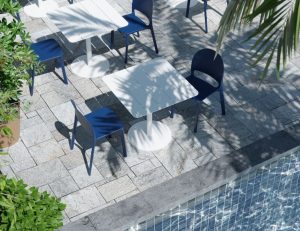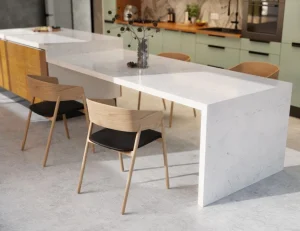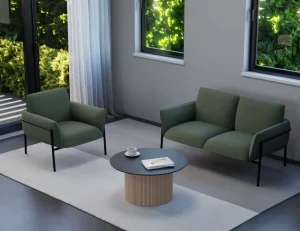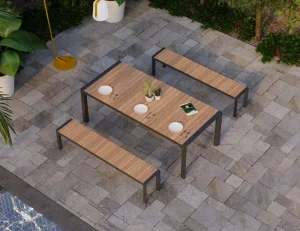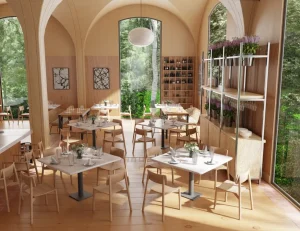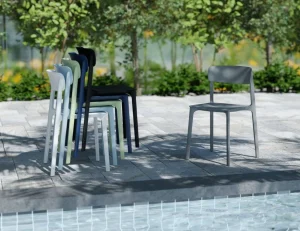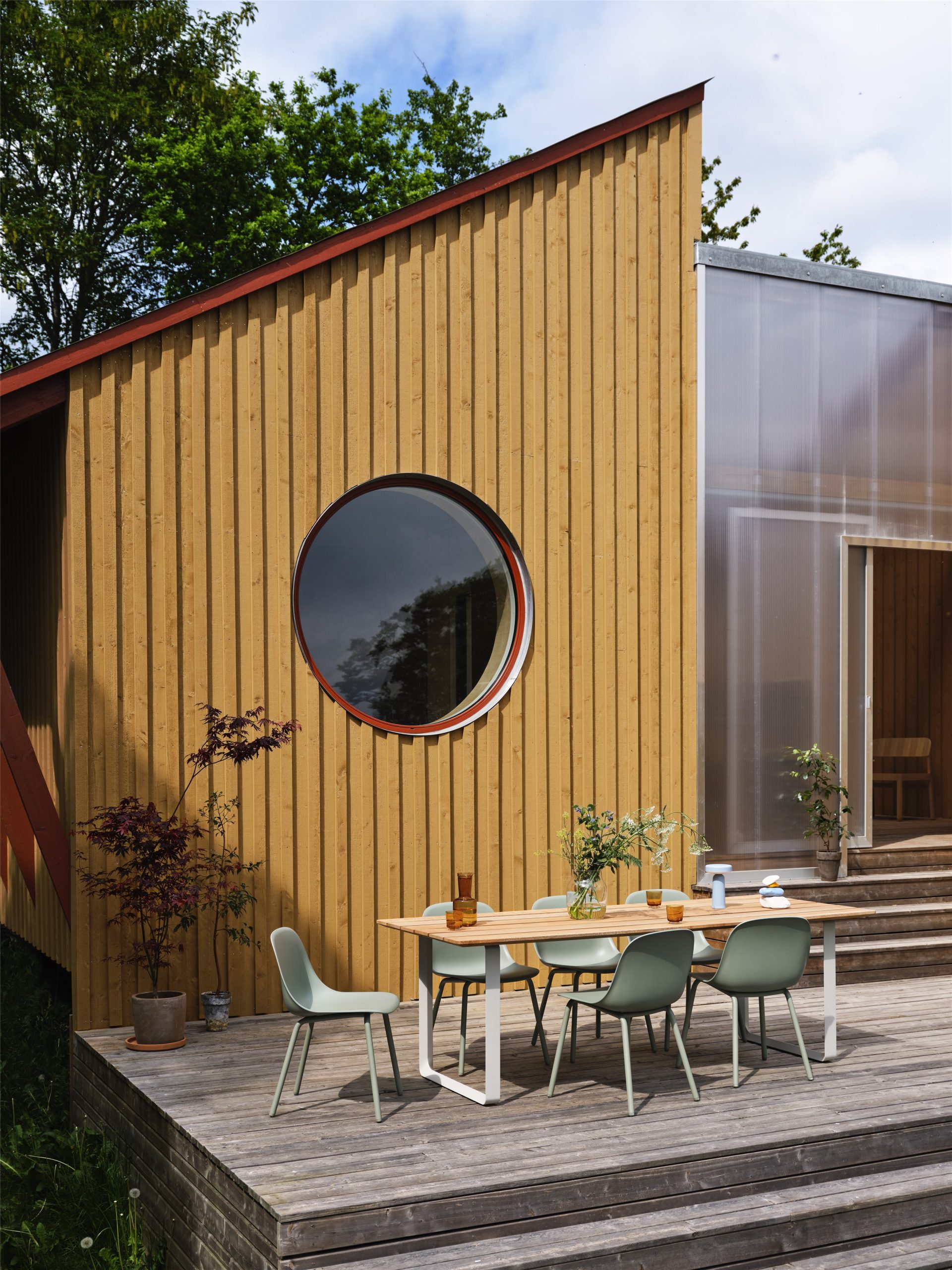
Comparing Wood, Metal, and Plastic for Outdoor Commercial Furniture
Have you ever found yourself puzzled while choosing the perfect furniture for your outdoor project?
Selecting the Right Material for Commercial Outdoor Furniture
Choosing the right material for your commercial patio, garden, or balcony furniture goes beyond mere aesthetics. It’s about striking the perfect balance between durability, style, and maintenance. For commercial projects, including hospitality and office spaces, the primary choices are wood, metal, and plastic, each with its unique advantages and considerations.
This comprehensive guide will delve into the nuances of these materials, comparing wood, metal, and plastic furniture across various factors such as durability, maintenance, cost, and environmental impact. By the end, you’ll be equipped to make an informed decision that enhances your commercial outdoor space, aligning with both functionality and design preferences.
Wood Outdoor Furniture
Types of Wood Used
When selecting wood for commercial outdoor furniture, teak, cedar, and pine are popular choices. Teak is celebrated for its exceptional durability and resistance to weather elements, making it ideal for high-traffic commercial environments. Cedar offers natural insect-repellent properties and a distinctive aroma, while pine provides a rustic charm at a more affordable price point but requires more care. Each type of wood brings a unique aesthetic, making them favored for commercial patio and garden settings.

Advantages of Wood Furniture
Wood furniture excels in aesthetics, providing a timeless, natural look that harmonises with outdoor environments. Hardwoods like teak are incredibly durable, often lasting for decades with proper care. The natural textures and warmth of wood lend an inviting and authentic feel to commercial spaces such as cafes and hotel gardens.
Disadvantages of Wood Furniture
However, wood furniture requires regular maintenance, including treatment with sealants or oils, to preserve its appearance and integrity. It is also susceptible to weather-related damage like warping or rotting, especially in damp conditions, necessitating a proactive approach to care for longevity.
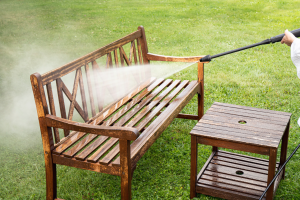
Optimal Settings for Wood Outdoor Furniture
Wood furniture is ideal for creating cosy and inviting patios or rustic garden corners in commercial spaces. It thrives in covered areas where it is less exposed to the elements, maintaining its beauty with minimal upkeep. This makes it perfect for restaurants, cafes, and boutique hotels that value natural aesthetics and are committed to regular maintenance.
Metal Outdoor Furniture
Types of Metal Used
Aluminium, wrought iron, and stainless steel are prominent materials for commercial metal furniture. Aluminium is lightweight and corrosion-resistant, making it easy to rearrange and ideal for outdoor cafes and restaurant patios. Wrought iron adds timeless elegance with its sturdiness, and stainless steel offers a sleek look with excellent durability and rust resistance, suitable for various commercial settings.

Advantages of Metal Furniture
Metal furniture is highly durable, ensuring a long-lasting presence in commercial outdoor spaces. Its modern designs fit seamlessly into urban and contemporary landscapes, while the lightweight nature of aluminium provides flexibility in outdoor décor. The combination of durability and style makes metal furniture a go-to choice for commercial projects.
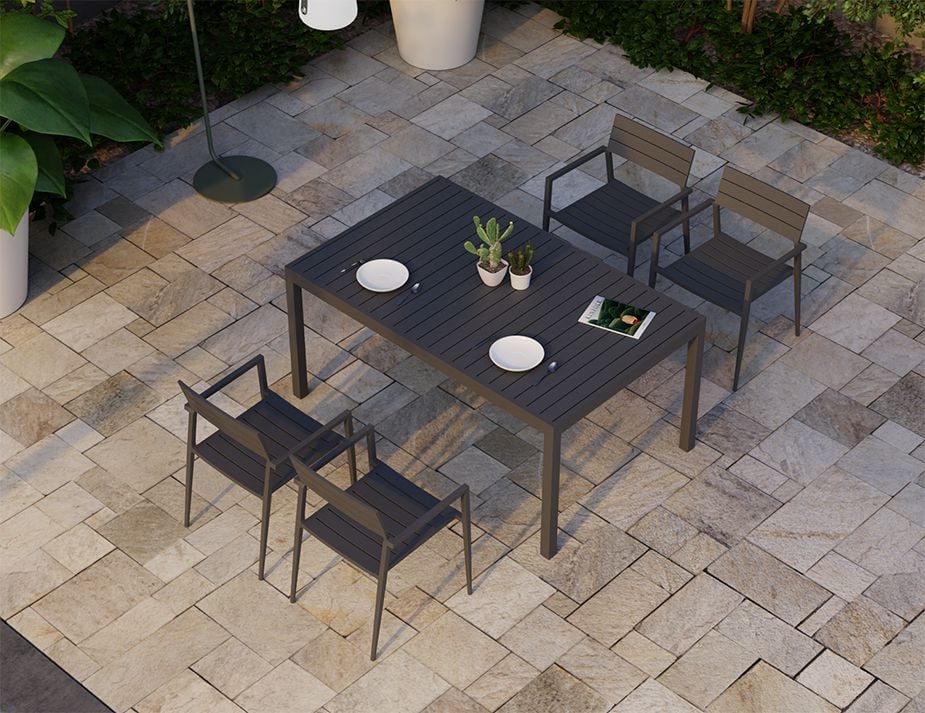
Disadvantages of Metal Furniture
Challenges with metal furniture include susceptibility to rust and corrosion, especially if not properly treated. Metal can also become uncomfortably hot under direct sunlight, requiring cushions or strategic placement in shaded areas. These factors must be considered when choosing metal furniture for commercial use.
Best Environments for Metal Outdoor Furniture
Metal furniture is well-suited for modern patio settings, urban balconies, and even coastal areas when made of corrosion-resistant materials like stainless steel. It is ideal for commercial spaces seeking a blend of functionality and aesthetic appeal, transforming outdoor areas into sophisticated retreats.
Plastic Outdoor Furniture
Types of Plastic Used
Commercial plastic furniture includes materials such as polyethylene, PVC, and resin. Polyethylene is robust and versatile, suitable for various styles. PVC is lightweight and flexible, often used in portable furniture, while resin combines the aesthetics of wood with plastic’s resilience, offering a refined look for commercial outdoor designs.
Advantages of Plastic Furniture
Plastic furniture is affordable and requires minimal maintenance, resisting most weather conditions and easily cleaned with household cleaners. Its weather-resistant nature makes it durable for outdoor use, standing up well to the elements without frequent replacements, making it ideal for high-traffic commercial areas.
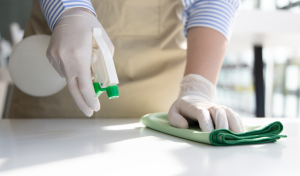
Disadvantages of Plastic Furniture
Plastic furniture is generally less sturdy than wood or metal, potentially leading to a shorter lifespan under heavy use. It may not match the elegance of natural materials, which can be a drawback for style-conscious commercial projects. Environmental concerns also arise, as plastic is non-biodegradable.
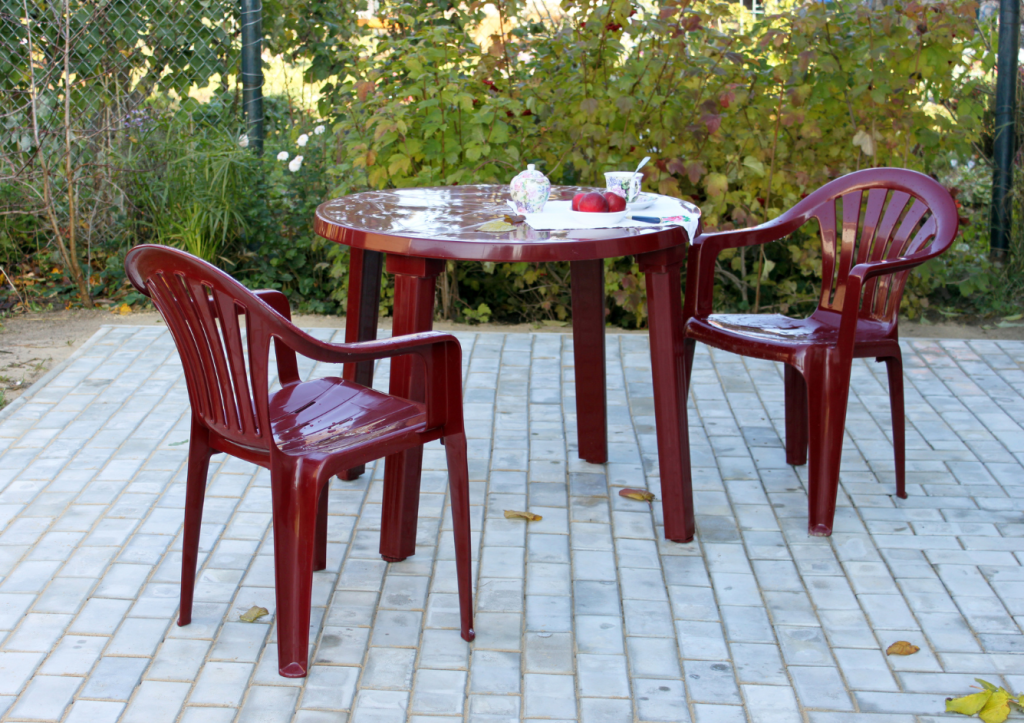
Optimal Applications for Plastic Outdoor Furniture
Plastic furniture is best for flexible and low-maintenance scenarios like poolside areas, children’s play areas, or casual outdoor seating. Its lightweight nature is advantageous for balconies or temporary setups in commercial spaces, making it a practical, budget-friendly option.
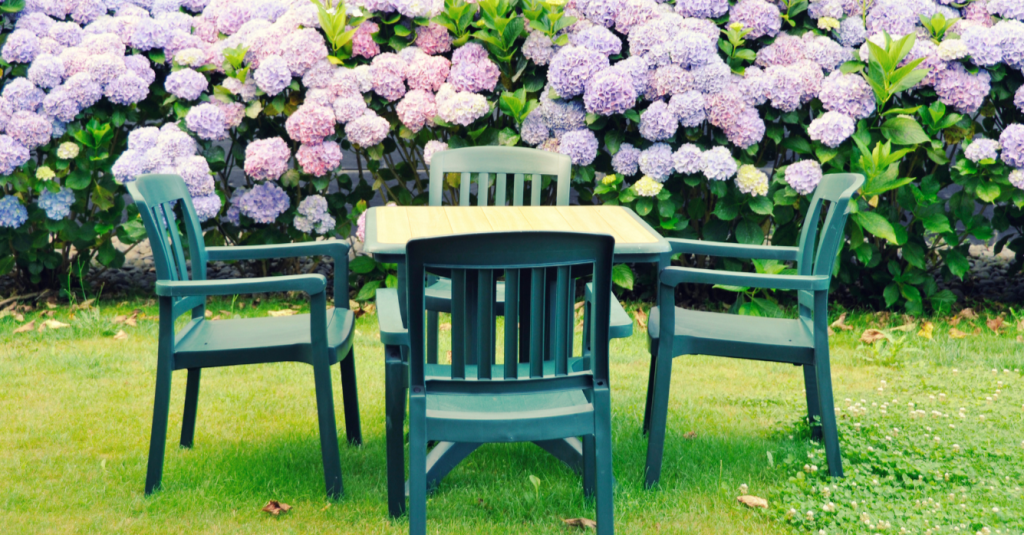
Comparative Analysis: Wood, Metal & Plastic
| Category | Metal | Wood | Plastic |
| Durability | High durability, resists rust and corrosion. | Versatile in design and colour, lacks a premium feel. | Weather-resistant, less durable under heavy use. |
| Maintenance | Requires dedicated care for appearance and structure. | Requires sealing or staining for integrity. | Considerable durability needs regular maintenance. |
| Aesthetic Appeal | Sleek, modern, or classic look. | Timeless, natural charm, may need refinishing. | Requires basic cleaning, and low maintenance. |
| Cost | Initially higher cost, better long-term value. | Versatile in design and colour, lacks a premium feel. | More costly initially, but worthwhile for longevity. |
| Environmental Impact | Resource-intensive, highly recyclable. | Sustainable if sourced properly, biodegradable. | Less energy to produce, non-biodegradable, recycled options available. |
Making the Right Choice: Selecting Your Ideal Outdoor Furniture
When selecting outdoor furniture, the choice between wood, metal, and plastic hinges on several key factors: durability, aesthetic appeal, cost, and environmental impact. Wood offers natural beauty and a classic look, but requires regular maintenance to preserve its longevity. Metal, particularly types like stainless steel, provides durability and a modern or traditional aesthetic, though it may require rust prevention treatments. Plastic is the most affordable and low-maintenance option, but it often lacks the sturdiness and style of wood or metal and raises environmental concerns.
Ultimately, the decision should align with your personal needs and preferences. If you prioritise longevity and classic elegance, wood might be your best bet. For those seeking durability with a modern twist, metal is an excellent choice. And for budget-conscious consumers looking for easy maintenance, plastic is a practical option. Consider the specific needs of your outdoor space, your commitment to maintenance, and your environmental stance when making this decision.
Ready to transform your commercial outdoor space? Contact Level Furniture Solutions at Level.com.au to schedule an appointment with our experts. Let us help you create a stunning and functional outdoor area tailored to your commercial project needs.
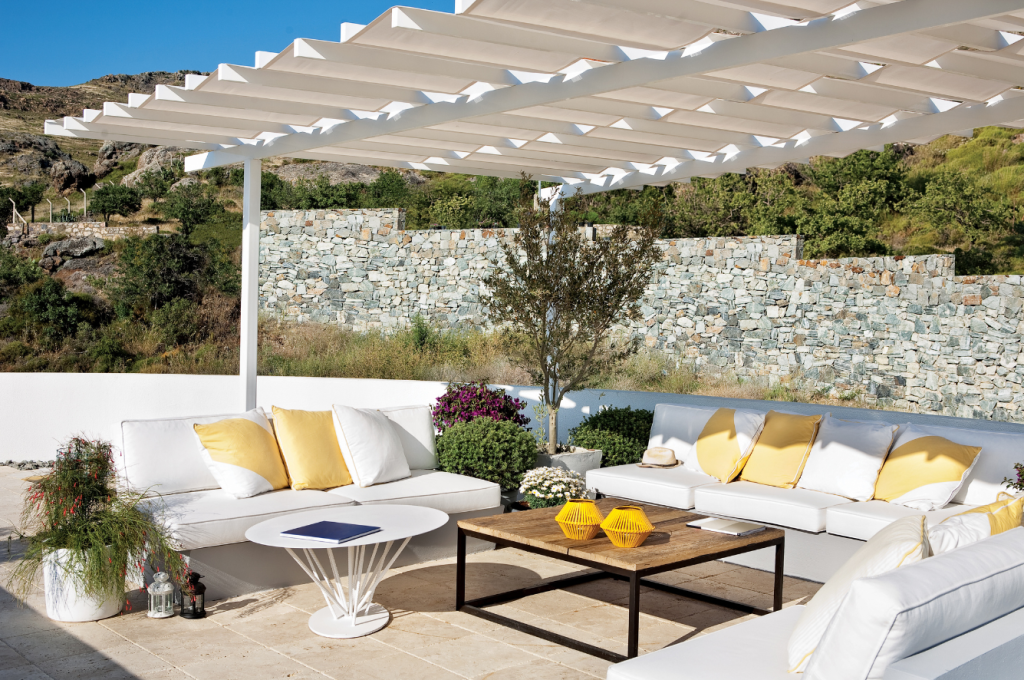
Frequently Asked Questions
Yes, plastic furniture is non-biodegradable, which raises environmental concerns. However, many modern plastic furniture options are made from recycled materials, reducing their environmental impact. When choosing plastic furniture, look for products that use recycled content or can be recycled at the end of their life cycle.
Colour impacts design for commercial furniture projects by affecting the overall aesthetic, functionality, and emotional response of the space. In commercial settings, colours can influence customer behavior, enhance brand recognition, and improve employee well-being. Thoughtful colour choices can transform a commercial space into an inviting and productive environment.
Colour impacts design for commercial furniture projects by affecting the overall aesthetic, functionality, and emotional response of the space. In commercial settings, colours can influence customer behavior, enhance brand recognition, and improve employee well-being. Thoughtful colour choices can transform a commercial space into an inviting and productive environment.
To create a cohesive outdoor design, mix and match materials that complement each other. For example, pair wooden tables with metal chairs for a rustic yet modern look, or use plastic furniture with metal accents for a contemporary feel. Ensure that the colours and styles of the materials harmonise with your overall design theme. Incorporate accessories like cushions, table runners, and decorative elements that tie the different materials together seamlessly.
Protect metal furniture from rust and corrosion by choosing materials that are naturally resistant, such as aluminium or stainless steel. Regularly clean the furniture with warm soapy water and apply protective wax or polish. Avoid placing metal furniture in direct contact with soil or grass to prevent moisture absorption. During extreme weather conditions, cover or store the furniture indoors to extend its lifespan.

